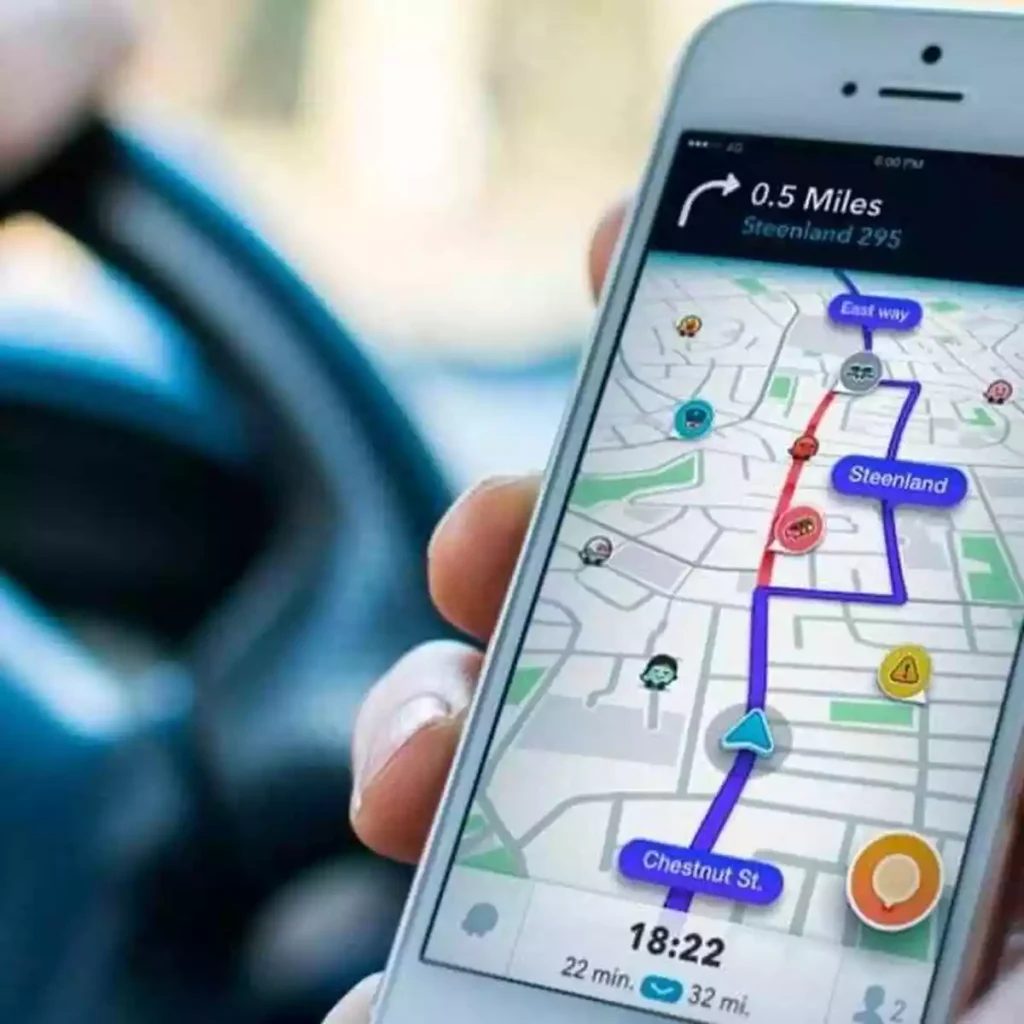In today’s technological landscape, artificial intelligence (AI) has been expanding into various fields, bringing significant innovations, especially in navigation apps. Waze, one of the leaders in this segment, has just implemented an innovation that promises to transform how drivers interact with the platform. Thanks to the integration of Gemini AI, developed by Google, Waze now offers traffic alerts triggered by voice commands, providing a more practical, efficient, and safer navigation experience for its users.
This update represents a major step in Waze’s evolution, as it has always stood out for real-time information exchange between drivers. With Gemini AI, the platform not only enhances the accuracy of traffic incident reports but also allows drivers to report events without interrupting their driving, ensuring smoother and safer navigation.

The new Waze functionality with Gemini AI is being gradually rolled out, initially for English-speaking users, with plans to expand to other languages in the coming months. This innovation enables drivers to report situations such as accidents, speed cameras, or roadwork quickly and conveniently, without the need for typing.
The experience is facilitated through a simple voice command. To issue an alert, the user only needs to press the alert button in the app and verbalize the type of incident, such as “accident ahead” or “roadwork on the way.” Gemini AI processes the speech accurately, identifying the incident and transmitting the information to the driver community in real time in a more intuitive and error-free manner.
This innovation not only improves interaction with the app but also prioritizes safety, allowing drivers to keep their hands on the wheel and their eyes on the road while reporting traffic issues. Waze, which already serves as a valuable tool for drivers by providing up-to-date traffic and incident information, is now even more efficient, as AI facilitates the exchange of information without additional effort from users.
The integration of artificial intelligence with voice commands brings a range of notable benefits for users. The most significant advantage is safety, as it eliminates the need to type while driving—an extremely risky practice that is often illegal in many regions. Drivers can now report incidents and receive alerts naturally, without taking their eyes off the road, minimizing the risk of accidents and improving traffic flow.
Another major benefit is the speed of information exchange. By allowing drivers to communicate events quickly and seamlessly, Waze reinforces the idea of collaborative navigation, where users play an active role in updating traffic conditions. This is particularly advantageous for professional drivers, such as taxi drivers, ride-share drivers, and delivery personnel, who rely on real-time information to optimize their routes and avoid congestion.
Additionally, Gemini AI enables greater customization of alerts, making them more adaptable to each user’s driving style. For example, the app can suggest alternative routes more efficiently, considering the driver’s preferences and real-time traffic behavior.
The introduction of AI in Waze is just one of many innovations that Google is developing to enhance its navigation platforms. The tech giant is heavily investing in incorporating AI into other tools, such as Google Maps and Google Earth, with the promise of making navigation more intuitive and intelligent.
Soon, features such as hospital counts in specific areas and complex searches using natural language will be integrated into Google Maps. This will allow users to conduct more precise and detailed searches without the need to type complex commands. Additionally, AI will be used to provide predictive traffic information, anticipating congestion conditions and suggesting alternative routes more effectively.
AI integration also promises to make map interactions even more accessible, enabling anyone, regardless of technical knowledge in programming, to take full advantage of the app’s functionalities. The trend is that, over the coming years, AI will play an increasing role, bringing greater convenience, safety, and personalization to users.
Waze is known for its engaged and collaborative community, consisting of drivers who share traffic information and help keep the app’s data up to date. With the introduction of voice alerts, community participation is expected to become even more active, as users will have a quicker and safer way to contribute to the system.
Although the company has not disclosed specific plans regarding compensation for drivers who contribute traffic information, Waze’s existing reward system, which includes points and badges, may be expanded to encourage the use of the new feature.
Overall, Waze, with the integration of Gemini AI, not only improves user experience but also strengthens its position as one of the most innovative and essential navigation tools on the market, with the potential to transform the way we move through cities.
The integration of artificial intelligence in Waze’s voice alerts marks a significant advancement in how we interact with navigation apps. By offering a safer, more efficient, and more intuitive way to report and receive traffic information, Waze not only prioritizes driver safety but also reinforces its role as an essential collaborative platform for those on the road. With the gradual implementation of Gemini AI and expansion to other languages, this innovation has the potential to transform the experience of millions of users, making navigation smoother and more dynamic.
Furthermore, Waze is only beginning to explore the vast potential of AI, with future updates expected to include more intelligent features across other Google platforms. The enthusiastic adoption by the Waze community, combined with AI’s growing impact, suggests that we are only at the beginning of a transformation in how we navigate and interact with cities, making travel faster, safer, and more connected.

